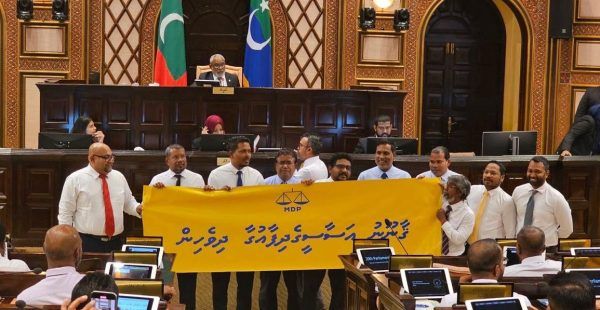
Maldivian lawmakers have approved sweeping new legislation to regulate journalists and media houses, despite mounting protests from local and international rights groups warning it could stifle press freedom in the island nation.
The Media and Broadcasting Regulations Bill, passed late Tuesday, paves the way for the creation of a powerful regulatory commission with authority to suspend outlets, block websites, impose heavy fines, and revoke media licenses. The bill now awaits ratification by President Mohamed Muizzu, which could come as early as Wednesday.
According to the private daily Mihaaru, “the Media Bill has been passed disregarding calls from over twenty organisations, both local and international,” including Reporters Without Borders (RSF), which has urged authorities to scrap the law.
RSF has warned that vague clauses barring journalists from publishing information “likely to be false” could serve as a tool for censorship and restrict coverage of government abuses. “This opaque wording could easily be used as a pretext for censorship,” the watchdog said.
Sweeping New Powers
The commission will comprise seven members, three appointed by the Muizzu-controlled parliament and four drawn from the media industry — though parliament retains the power to dismiss them.
It will have powers to:
Fine individual journalists up to 25,000 rufiyaa ($1,625) and media outlets up to 100,000 rufiyaa ($6,500).
Retroactively sanction content published up to a year before the law comes into effect.
Initiate punitive actions against editorial offices, including suspensions and licence revocations.
While the Foreign Ministry defended the legislation as a step toward boosting public trust in media and curbing disinformation, it clarified that the rules would not apply to social media accounts.
Maldives’ Press Freedom Ranking
In RSF’s World Press Freedom Index, the Maldives currently ranks 104th out of 180 countries — better than its neighbours Sri Lanka (139) and India (151), but still vulnerable, critics say, to political interference in journalism.
Rights advocates warn that if signed into law, the bill could mark a serious regression for free expression in a nation better known for luxury tourism than press crackdowns.



